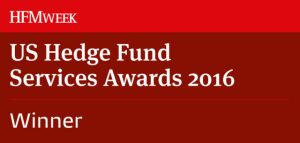The global compliance deadline for implementation of variation margin requirements for uncleared swap transactions is March 1, 2017. Unless an exception is available, the rules generally require swap dealers to collect and post variation margin with no credit threshold. The rules require the parties to enter into new or amended credit support documentation, limit the types of collateral that may be posted, prescribe minimum transfer amounts and effectively require new operational processes to be put in place. Moreover, different rules can apply depending on who the swap dealer’s regulator is and/or the jurisdiction of the counterparty. Not surprisingly, many market participants, particularly smaller financial firms, buy-side firms, asset managers, pension funds and insurance companies are unlikely to be compliant by the March 1 deadline. This has caused immense consternation among buy-side market participants who feared that they would be unable to trade until they came into compliance.
On February 23, 2017, following requests from numerous trade associations, U.S. banking regulators and IOSCO, the umbrella body for global securities regulators, issued statements encouraging leniency in enforcement of the documentation requirements. More specifically, the Federal Reserve provided guidance to examiners of CFTC-registered swap dealers that, except for transactions with financial end users that present “significant exposures” (which must still comply with the March 1 deadline), examiners should focus on swap dealer’s good faith efforts to comply as soon as possible but no later than September 1, 2017. Similarly, though less explicitly, IOSCO issued a statement that, while it expects all parties to make every effort to meet the March 1 deadline, it believes that the global regulators should take “appropriate measures … to ensure fair and orderly markets during the introduction and application of such variation margin requirements.” These statements follow the release by the CFTC on February 13, 2017 of a time-limited no-action letter delaying compliance by swap dealers under their jurisdiction until September 1, 2017.
There are a number of paths to compliance for buy-side firms, including negotiating bilateral agreements or amendments directly with swap dealers or using an industry-wide questionnaire-style protocol developed by ISDA and available through their ISDA Amend automated service run jointly with Markit.
If you have questions regarding the current deadlines or need assistance with compliance, please contact our derivatives partner, Daniel Budofsky (daniel.budofsky@pillsburylaw.com), or your regular Pillsbury contact.





